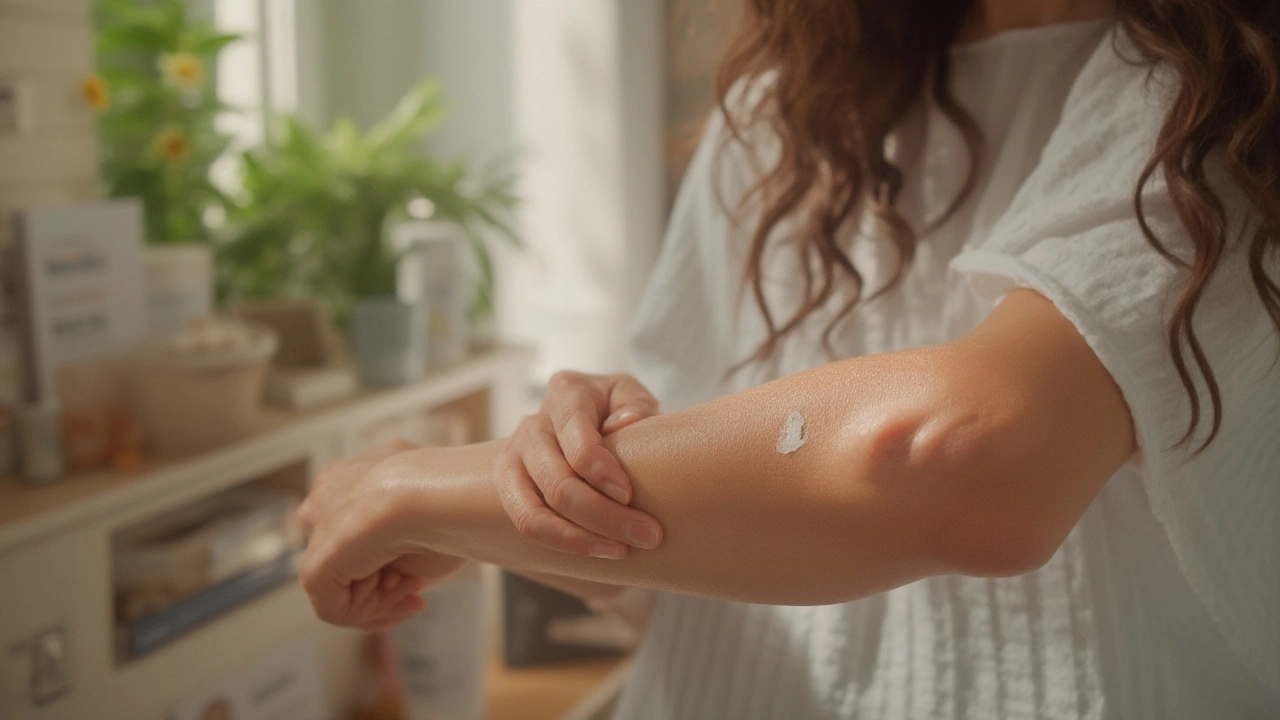Psoriasis Treatment: What Really Works?
Struggling with psoriasis is a daily battle. The itching, burning, and endless flaking can mess with your confidence and your schedule. But you don't have to stick with one-size-fits-all answers. There's a wide range of proven psoriasis treatments out there, and finding the right fit is about what actually works for your skin.
Let's start with the basics. Topical steroids are the go-to for many people. These come as creams or ointments that you rub right on patches. For small or mild spots, corticosteroids can calm redness and get rid of itching fast. But here’s the catch—use them too long, and side effects like thinning skin can pop up. That's why some folks rotate with non-steroid creams like vitamin D analogues (calcipotriene is a big one) or coal tar products. They may not work overnight, but for some people, they're gentler for long-term use.
If your psoriasis covers large areas or just won't quit, phototherapy might come up in your doctor’s office. Think of it as a controlled sunbath using UVB light, but without the guesswork or sunburn risks. Dermatologists set the strength, time, and frequency to dial in real progress while avoiding burns. Just remember, you’ll need to go a few times a week—and stick with it regularly to see results.
Now, for those tougher cases, oral and injection medications open up even more options. Methotrexate and cyclosporine are common pills that tamper down the body’s inflammation response. Biologic injections (stuff like adalimumab or secukinumab) target specific parts of your immune system, getting deeper than creams ever could. These can make a night-and-day difference for stubborn psoriasis but call for regular doctor check-ins—they're powerful, and doctors keep a close eye out for side effects.
Don’t forget your daily routine counts, too. Simple steps like daily moisturizing (try fragrance-free creams), gentle soap, and avoiding scalding hot showers can calm that angry skin. For some folks, skipping out on certain triggers—like specific foods, alcohol, or even stress—makes flare-ups less intense or frequent. Worth tracking what sets yours off. Jot down flare timelines in your phone, and you might uncover patterns sooner than you think.
New treatments pop up all the time—some more hype than help. It pays to be skeptical of miracle creams you see online, especially if they're not from a trusted pharmacy or dermatologist. And if you’re curious about supplements, like fish oil or vitamin D, talk to your doctor first. Some might help, but it’s never a “magic fix.”
You’re not alone—plenty of people rack their brains over what actually works for their psoriasis. Check reviews or real-life stories when looking into new therapies. Sometimes swapping tips with others who live with psoriasis gets you further than an internet deep-dive.
Temovate: Uses, Side Effects, and Essential Tips for Safe and Effective Use
Discover how Temovate (clobetasol propionate) treats stubborn skin conditions, its potential side effects, safety directions, and expert tips for best use.
Read more
